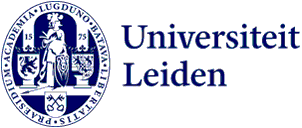
Ethics and student research: 'Students have the same questions as researchers'
When do you submit a thesis proposal to the Ethics Committee? And how do you ensure that students save their data properly? On 9 June, thesis supervisors will be able to ask these questions at the Ethics Education Afternoon. Professor Herman Paul and policy officer Marcel Belderbos will tell us more about it.
’The Ethics Committee was established in 2019 to help answer ethical questions within research,' says Belderbos. 'We ask researchers who use personal data or participants, for example through interviews, to submit their research proposal to the committee.'
We in the committee need on the one hand to think broadly about how to organise research in such a way that it is ethically responsible, but at the same time, there are very specific questions from researchers who want to publish in journals that require an Ethics Committee's stamp of approval,' explains Paul. And it is not just researchers who want answers to such questions. ‘We know that these issues are also of concern to students. They are faced with the same questions as staff: after all, for a respondent it makes no difference whether a professor or a student is asking the questions. In addition, we increasingly hear from thesis supervisors that students want to publish and need approval from an Ethics Committee.’
Opening up to students
That is why the Ethics Committee is also opening up to students and their supervisors. ‘We will start with a one-year trial, for research master's students only,' explains Belderbos. ‘At the moment, ethics is sometimes just a box to tick on an assessment form that is filled in afterwards. We want to make students and lecturers more aware of the fact that it is important to ask ethical questions before starting their research. The committee can help by providing relevant material and, if this doesn’t help, by offering the possibility of coming to the committee.’
Not a police force
Thesis supervisors can find out more about these materials and possibilities at the Education Afternoon on 9 June, where various workshops and lectures are on the programme. ‘I will show how I often work with my PhD students on the basis of real-life dilemmas,' says Paul, 'but I will also talk about setting up a data management plan and the checklist for submitting to the Ethics Committee'.
They both stress that it is certainly not the intention that every thesis from now on has to be submitted to the Ethics Committee. ‘I myself work mainly with historical, printed sources,' says Paul. ‘Then there is no reason whatsoever to come to the Ethics Committee. Belderbos also emphasises: 'The Ethics Committee is not a police force. Research benefits from thinking about ethics in advance, but that doesnt mean you always have to fill in all kinds of forms straight away. Sometimes it’s enough to just give us a call'.
The Education Afternoon Ethics will take place on Thursday 9 June. The full programme can be found here.
